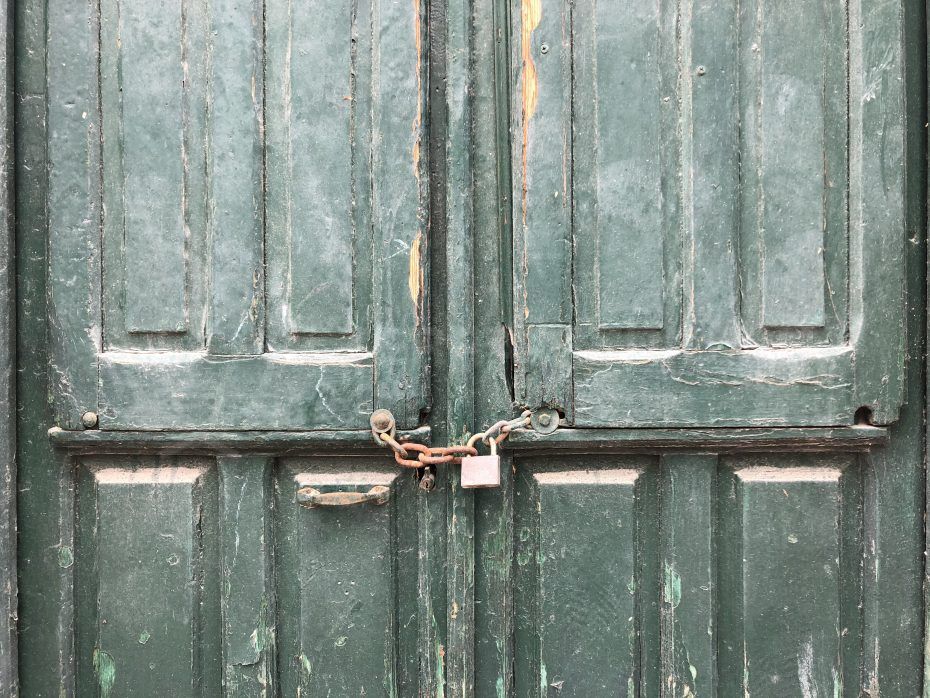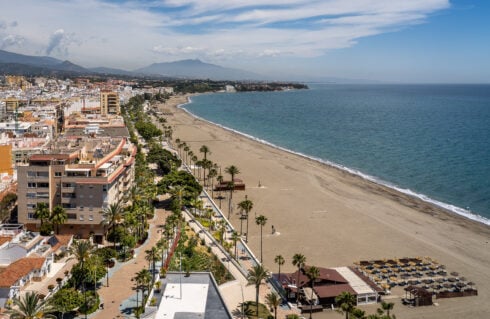THE Costa del Sol attracts all kinds of property hunters, from well-heeled sun-seekers to those on the lookout for an unoccupied residence to break into and call home.
Squatters, or okupas as they’re known in Spanish, are becoming increasingly common across Spain, especially since the financial crisis. More than 83,000 properties were in ‘okupacion’ in the middle of 2019, a year-on-year increase of nearly six percent.
The province of Malaga is ranked third nationwide, after Madrid and Barcelona, in terms of the number of properties occupied illegally. For homeowners here, not just those with second homes on the coast but also year-round residents who go on holiday and return to find their habitual residence okupada, understanding the rights and wrongs of what you can do about it is crucial.
To find out all about owners’ possible rights of recourse, we asked our friendly neighbourhood lawyer, Adolfo Martos of Martos & Gross Abogados, for his professional opinion. And the first thing to be aware of, he warns, is that Spanish law tends to protect squatters more than owners, so recovering possession can prove to be a long and costly process.

While squatting is illegal, Adolfo insists that taking the law into your own hands to get squatters out of a property can also be considered a crime. As a result, immediately calling the police and eventually going to court is the safest, albeit not the fastest, way to get your property back.
READ MORE:
- Dodgy money deals, mafia involvement, rent-a-squatter scams – the murky underworld of free real estate in Spain
- Hotel Los Alamos in Torremolinos may FINALLY re-open after serving as eyesore and squatter haven on Spain’s Costa del Sol for years
The legislation on okupacion provides potential remedies via civil or criminal proceedings, with the latter offering the most effective option for removing ‘unwelcome guests’ in cases where the crime and its consequences are particularly grievous.
The criminal route
Spain’s criminal code contains two articles that regulate squatting: #202, relating to a property owner’s primary place of residence, concerns breaking and entering (allanamiento de morada), for which offenders can be punished with prison sentences of between six months and two years; and #245, which holds that usurping a property not used as a main residence against the rightful owner’s wishes is a crime punishable by a fine or jail term, depending on whether violence and/or intimidation was used.
The procedure in both cases is the same: lodge a complaint (denuncia) with the police or the courts (the police are usually more efficient, says Adolfo). They then visit the property, collect pertinent evidence from both parties (owner and squatter) and present it to the court. At that point, he says, the owner should request the judge immediately evicts the okupa to prevent the crime continuing to be committed.
Adolfo’s advice, if squatters move into your main residence or frequently occupied second home, is to take the criminal route first
There’s a ‘but’, Adolfo notes. Judges often decide against this kind of cautionary eviction when insufficient evidence is brought or the plaintiff requests it too late. The success of such measures depends on the facts in question and evidence provided; squatting in a family home is not the same as squatting in a long unoccupied bank-owned property.
If this route doesn’t work, it can take up to a year to resolve while an investigation determines criminal action and passes it on to the prosecutor before going to the courts for a decision that may be subject to appeal in provincial tribunals, causing further delay.
The civil route
Occupying a property without having been given the right to do so is clearly a civil offence, Adolfo points out, and one which gives rise to two possible courses of action:
1. ‘Express’ eviction: this allows the rightful possessor (owner, tenant or other beneficiary, although companies are excluded) to petition the courts to request the return of the property, while asking the judge to adopt the cautionary measure of eviction prior to sentencing. If granted, the squatter has five days to either present ‘sufficient title’ to remain, or will be ordered to vacate the property with no right to appeal. In practice, Adolfo admits, the process can still take several months and can be hindered if the okupa drags things out.
2. Conventional eviction: if verbal proceedings do not produce the desired result, owners have to wait for the courts to pass sentence and order squatters to be evicted. This can take up to 18 months.
There are other factors to consider, Adolfo adds. If local courts are backlogged (Estepona is more so than Marbella), if the evidence provided by a clever okupa stands up in court or if other delays arise, it may take even longer to recover a property, and legal bills running to thousands of euros are not unheard of.
Adolfo’s advice, if squatters move into your main residence or frequently occupied second home, is to take the criminal route first. Then, if the judge does not grant an immediate eviction, drop the criminal case and begin civil proceedings instead.
At Terra Meridiana, we can help you protect your property, whether it’s your everyday home or a lock-up-and-leave place in the sun where you spend your holidays.
Our property management services include regular inspections and the installation of alarm systems to deter squatters. Please contact us if you would like any further information.
Email Adam on adam@terrameridiana.com or call him on +34 678 452 109 or +34 951 318 480
Click here to read more Adam Neale: Property Insider News from The Olive Press.








